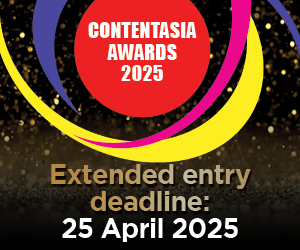What’s the right role for Big Data in the TV world? It’s a question Asia’s media bosses are busily asking as they move beyond TV.
For Southeast Asia’s most powerful platform, Astro Malaysia, the data future is all about having a clear vision and asking the right questions in order to get there.
“From a leadership perspective, we have to have a vision and a five-year plan and an idea of the marketplace and how it’s evolving... and then to circle back and look at the questions we need to have answers to in order to optimally organise ourselves to get there,” says Astro chief executive, Rohana Rozhan. “It’s not about having tons of people gathering data in isolation,” she adds.
Prioritising data is nothing new. For the 19-year-old Astro, “there has always been the need for research, for the right questions, for reports, for analysis on historical performance and how to do better,” Rohana says.
Today, that has been extended, with new technology and a few more tools. But still, “it’s an extension of what we have always done”. Which means using data to drive, for example, pricing decisions, upselling initiatives, driving operational optimisation and ad sales.
What Astro isn’t doing is “using data capabilities... to look into the future,” she adds.
She divides the world in two: “business as usual” and “scary”. There is nothing to fear in the first. “We should not be scared of what we know,” Rohana says. But, she adds, “we should be very scared of what we don’t know”.
“We need to use data to extrapolate what we need to do in the scary world. And we are starting to do that in earnest now,” she says.
Those initiatives have to run “in tandem with our plans for that world, otherwise you end up gathering so much data and not having the right questions,” she adds.
“What scares incumbents like us is that we are rooted in the present and the past. What stops us from being disruptive is ourselves. And that’s why we n...
What’s the right role for Big Data in the TV world? It’s a question Asia’s media bosses are busily asking as they move beyond TV.
For Southeast Asia’s most powerful platform, Astro Malaysia, the data future is all about having a clear vision and asking the right questions in order to get there.
“From a leadership perspective, we have to have a vision and a five-year plan and an idea of the marketplace and how it’s evolving... and then to circle back and look at the questions we need to have answers to in order to optimally organise ourselves to get there,” says Astro chief executive, Rohana Rozhan. “It’s not about having tons of people gathering data in isolation,” she adds.
Prioritising data is nothing new. For the 19-year-old Astro, “there has always been the need for research, for the right questions, for reports, for analysis on historical performance and how to do better,” Rohana says.
Today, that has been extended, with new technology and a few more tools. But still, “it’s an extension of what we have always done”. Which means using data to drive, for example, pricing decisions, upselling initiatives, driving operational optimisation and ad sales.
What Astro isn’t doing is “using data capabilities... to look into the future,” she adds.
She divides the world in two: “business as usual” and “scary”. There is nothing to fear in the first. “We should not be scared of what we know,” Rohana says. But, she adds, “we should be very scared of what we don’t know”.
“We need to use data to extrapolate what we need to do in the scary world. And we are starting to do that in earnest now,” she says.
Those initiatives have to run “in tandem with our plans for that world, otherwise you end up gathering so much data and not having the right questions,” she adds.
“What scares incumbents like us is that we are rooted in the present and the past. What stops us from being disruptive is ourselves. And that’s why we need the ability to ask the right questions and have the right vision and to use data compellingly to optimise our plans”.
The massive pace of change looms large; “It’s one of the things that scares me,” she says, pointing to the difference between Astro’s World Cup initiatives in 2010 and those in 2014. In 2010, the focus was offering matches in HD... followed by subscription and ad revenues. In 2014, activity exploded from football matches to a community that shared the experience.
“We were outside that social ecosystem,” Rohana says. “It’s our content and people were viewing it, but the socially connected system excluded us. We were at the core, but the engagement was outside.”
She says broadcasters and media players are not getting a share of digital ad dollars, and won’t while they are outside the digital ecosystem, excluded from much of the data associated with their content.
“We don’t have the data from the World Cup because we were outside the social ecosystem. The scary part is that change happened in four short years. What will 2018 look like? How do we look at that property and the economics of it? That’s the challenge.”
At the same time, “the reality of our business is that it’s not all machines, not all science. It’s also about the layering of taste, creativity, gut feel and intuition... and finally it has to be about having the right people to make the final calls and to read the data in a way that allows you to make the call,” she says.
“People like us who are in tech and content and consumer spaces are best-placed to deal with this because we have the ability to layer the art and science, the heart and soul and the creativity, whereas others look at content as more of utility, which it isn’t. So It’s ours to lose.”



















